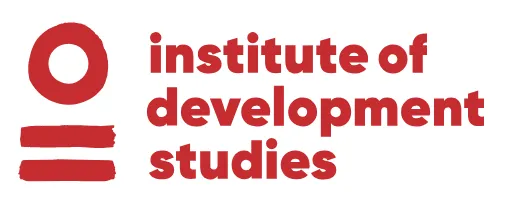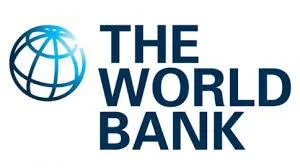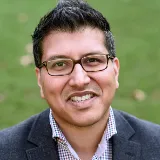The Institute of Cancer Policy (ICP) brings together the world’s largest global cancer services, systems and policy research faculty. Co-ordinated by King’s College London and London School of Hygiene & Tropical Medicine with over fifty international organisations and countries we conduct research to support countries, organisations and the private sector deliver more affordable, equitable and high-quality cancer care across the world. We have helped countries deliver their national cancer control plans and organisations with strategic cancer intelligence to guide their strategies. Our work helps shape markets and systems to improve the delivery of innovation across complex settings.
The ICP has developed unrivalled experience, expertise and evidence across complex health settings and system challenges for cancer control. We integrate advanced transdisciplinary research methods from epidemiology, financing economic and political sciences through to implementation science and health systems research. Community and patient involvement and understanding the broader social determinants of cancer is a central strategic pillar. The ICP has led over 35 major policy commissions over the last decade, all published with the Lancet and Lancet Oncology.
The ICP has conducted strategic insight research for national governments, the World Bank, the World Health Organisation, international research and economic bodies as well as humanitarian organisations. We also support a number of international cancer organisations to provide strategic global cancer intelligence in support of their work. We are advisors to multiple organisations and governments on a variety of aspects of cancer control.
Our strategy rests on three pillars
- Building Resilient Cancer Systems against future shocks e.g. pandemics
- Financing Cancer Care to deliver innovation
- Delivering Quality Cancer Care for better patient outcomes
In 2025 we will be conducting a major review for the World Bank on understand and shaping global systems architecture for financing cancer control.
Projects
- Lancet Oncology Cancer Workforce Commission. In a follow up to the first Moonshot commission the ICP is working with colleagues to examine national workforce challenges specifically focused on Sub Saharan Africa and Latin America
- The Lancet Oncology Commission: The Human Crisis in Cancer was launched at African Organisation for Research and Training In Cancer (AORTIC) annual meeting in Tunis on 3rd November. This work, co-led by ICP and Global Institute of Psychosocial, Palliative & End-of-Life Care (GIPPEC) at Princess Margaret Hospital, will now be utilised to re-frame the dialogue on making cancer care, research and education more human-centred.
- Global Quality Indicators (QI) for Cancer Care for City Cancer Challenge. Currently in phase II (examining cancer quality indicators for cancer pathology, imaging, palliative care and financing) the ICP continues its groundbreaking work on QI in support of C/CAN’s wider mission.
- Commonwealth Lancet Oncology Commission. Initiated in 2024 the ICP is contributing to two workstreams of this new Commission.
- National cancer control planning for the UK. The ICP has co-led major strategic reviews and analysis into the UK’s national cancer control plans. Currently an in-depth examination of the strategic direction of UK cancer R&D is underway. Within this work the ICP have developed tools to inform cancer service planning https://www.thelancet.com/journals/lanonc/article/PIIS1470-2045(22)00398-9/fulltext
- Cancer care in humanitarian settings (R4HC/R4HSSS). Following on from the recently published WHO-endorsed Manifesto following the joint ICP (King’s College London) / WHO UN NCD cancer in humanitarian settings meeting we are working with partners to develop high level operational engagement
- GACD funded multi-cancer early detection implementation science - Access Cancer Care India. Now in its 3rd year in collaboration with cancer leaders from India and WHO IARC this multi-site implementation science program continues its work to develop new models for early detection of high burden multiple cancers.
- Augmenting pelvic surgery training through virtual reality surgical simulation (VRSS) supported by Rosetrees Foundation/BASO. Our partnership with Zambian and Southern Methodist University (USA) colleagues to develop has now reached clinical development and validation stages.
- Supporting surgical oncology capacity development in Zambia. We are working to support Zambian colleagues in the development of a cancer surgical capacity plan, focused on pelvic (cervical cancer) and general surgery (breast cancer as well as broader research capacity plan.
- Supporting research prioritisation for cancer to inform national cancer control planning. We supported Zambian and Ugandan colleagues using a Delphi methodology to develop a key set of research priorities for prostate cancer care. https://bmjoncology.bmj.com/content/bmjonc/3/1/e000172.full.pdf
- ICP support several national and international Value based healthcare initiatives. As co-chair of the Health Economics in Radiation Oncology group within the European Society of Radiation Oncology, Ajay Aggarwal is one of the leaders of the value-based health care programs designed to support responsible and timely adoption of evidence based technologies. https://www.estro.org/Advocacy/ECF/Value-Based-HealthCare-(VBHC)
- Common Sense Oncology. As founding partners ICP continues to support core activities of CSO in particular on wider biopharmaceutical public policy. We currently have active projects on medicines regulatory policy in Brazil and European Union.
- Our work on therapeutic geographies continues to expand with studies in the Middle East, Ukraine and in high income countries like the UK. These analyses challenge traditional patient pathway models, especially in regions impacted by conflict and crisis. Cancer planning needs to be responsive to real world dynamics for effective reach and management of patients nationally.
- Building global resilience against Disease X into global cancer services & systems. Following the work of the COVID-19 and Cancer Global Taskforce co-led by the ICP and in collaboration with biosecurity experts through King’s Centre for Conflict & Health Research we are continuing our work to understand critical impact and mitigation strategies for cancer systems to future pandemics and building this intelligence into the work of the International Partnership for Resilience in Cancer Systems (IPaRCS).
- Trial evaluation of Artificial Intelligence for radiotherapy treatment. The ARCHERY study led by Ajay Aggarwal is the first prospective international trial across India, South Africa, Jordan and Malaysia evaluating the role of AI in radiotherapy with multiple partners include the Medical Research Council and MD Anderson Cancer Center.
- Quality Assessment and Assurance of Cancer Care – Ajay Aggarwal is the Clinical Director of the UK National Cancer Audit Collaborating Centre NATCAN oversee 10 national audits of cancer care, covering all public sector hospitals in the England and Wales NHS.
- Collabortive centre to WHO and provision of technical advice to key workstreams related to Noncommunicable diseases and cancer, including Global Cervical Cancer Screening and Treatment Guideline Development Group and Global Breast Cancer Initiative.
- Partner to the International Cancer Control Partnership and currently conducting a number of sub-analyses following the recent global review of NCCPs.
- The ICP is working with World Bank to examine the landscape of global cancer control to inform their future work on financing and economics of cancer control.
- The English NHS National cancer audits continue to deliver world class research insights fro quality indicators and quality improvement.
Media & Meetings
- ICP quoted in Nov 2025 Lancet Oncology news piece on WHO calls for investment in cancer prevention and care within a wider NCD strategy calling for more of focus on systems strengthening and equity
- ICP also quoted in Nov 2025 news item on cancer care in urgent demand in Ukraine, says WHO around the reliability of epidemiology data being used to plan future policy actions
- Nov 2025 editorial on international financing for cancer care in Lancet Oncology also quotes ICP and their work with World Bank group
- Guardian’s view on Merck exit: ICP interviewed on Britain’s biopharma strategy.
- Short news on ARCHERY with link to the new video by Professor Ajay Aggarwal on "AI in Radiotherapy"/Archery Film
- IGCS 2025 launch of 5-year project to accelerate cervical cancer planning and implementation with a kick-off of the series in Cape Town, South Africa with ACCESS Africa taking a deeper dive into the status and way forward in the highest burden region of the world.
- ICP at the European Cancer Summit 2023 discussing conflict and cancer
- The UK’s failure to provide a coherent cancer plan. ICP commentary in Guardian
- ICP at the joint EMA / EORTIC Optimising Drug Development meeting in April 2024. How to better develop public policy for academic clinical trials
- ICP supported BMJ examination into issues with multi-cancer early detection test GrAiL
- ICP quoted in Men’s Health magazine article on early onset cancer
- Julie Torode, Ajay Aggarwal and Richard Sullivan will be presenting research and policy at the World Cancer Congress in Geneva in September 2024, covering global can cer surgery, cancer care in humanitarian settings, global cancer quality agenda, amongst many other topics.
- In 2025 the ICP has partnered with Institute of Development Studies to examine the impact of China’s BRI on global cancer
- ICP joined the WHO Essential Medicines for Cancer meeting on 22-24 Jan 2025 to examine the place of immuno-oncology.
- The ICP participated and contributed to report by the Pontifical Academy of Sciences and the European Academy of Cancer Sciences held at the Vatican City in May 2025.
- ICP board member Julie Torode is now serving on the Global Expert Advisory Group on Ovarian Cancer convened by The World Ovarian Cancer Coalition.
- ICP features in Oncodaily newsfeed
Our Partners

UK Research and Innovation (UKRI)
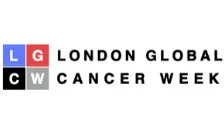
UK Global Cancer Research Network (UKGCRN)
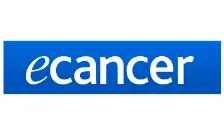
eCancer
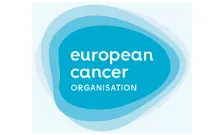
European Cancer Organisation (ECCO)
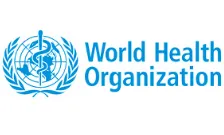
World Health Organisation (WHO)
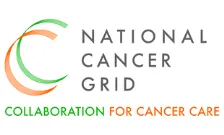
National Cancer Grid of India (NCG)
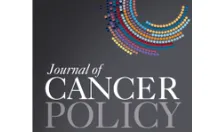
Journal Cancer Policy (JCP)
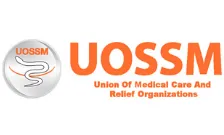
Union of Medical Care and Relief Organizations (UOSSM)
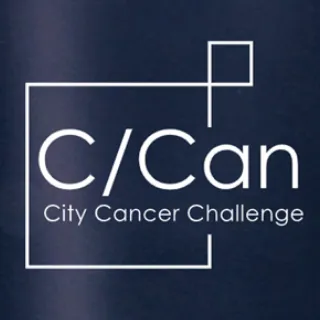
City Cancer Challenge
Group leads
Related departments
- Faculty of Life Sciences & Medicine
- School of Cancer & Pharmaceutical Sciences
- Comprehensive Cancer Centre
- School of Basic & Medical Biosciences
- School of Security Studies
- Faculty of Social Science & Public Policy
- School of Global Affairs
- King’s Global Health Institute
- Florence Nightingale Faculty of Nursing, Midwifery & Palliative Care
- Cicely Saunders Institute of Palliative Care, Policy & Rehabilitation



